by Lynn Lee
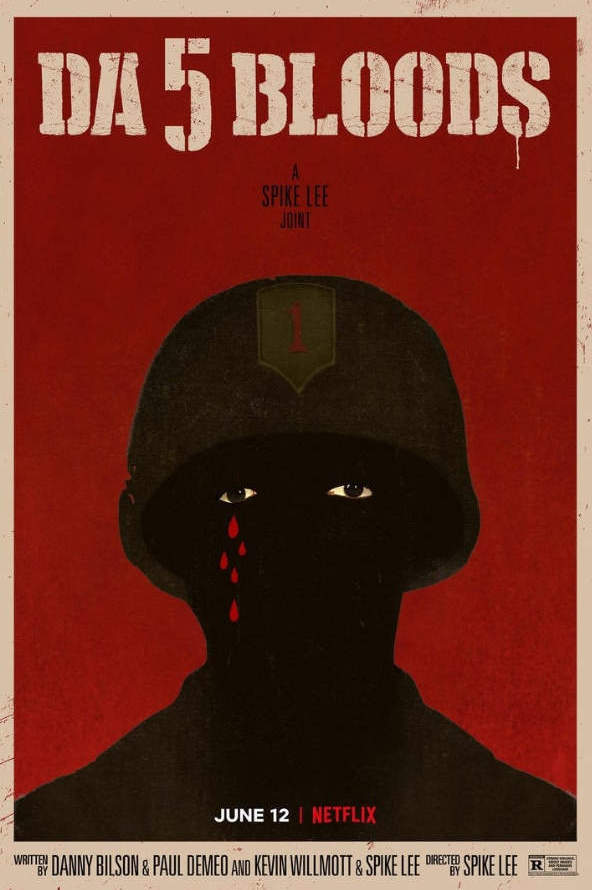 Perfectly timed. The right voice for this precise moment. Spike Lee’s never been more necessary than he is now.
Perfectly timed. The right voice for this precise moment. Spike Lee’s never been more necessary than he is now.
If you’ve read one variation of the “timeliness” reaction to Spike Lee’s latest joint by way of Netflix, Da 5 Bloods, you’ve read them all. It’s a truth so self-evident it practically amounts to a truism. Except the fact is that Spike Lee never went anywhere – he’s been here the last 30 plus years, educating us on the ugly persistence of systemic racism in the U.S. His movies have always been timely; it’s our fault if we’ve failed to heed their underlying admonitions or give them the sustained attention they deserve. It makes little sense, then, to accord his newest release any extra expectations that it will “speak to the moment.”
Still, given that it's Spike Lee, it does speak to the moment, if less directly – or less crisply – than some of his previous films...
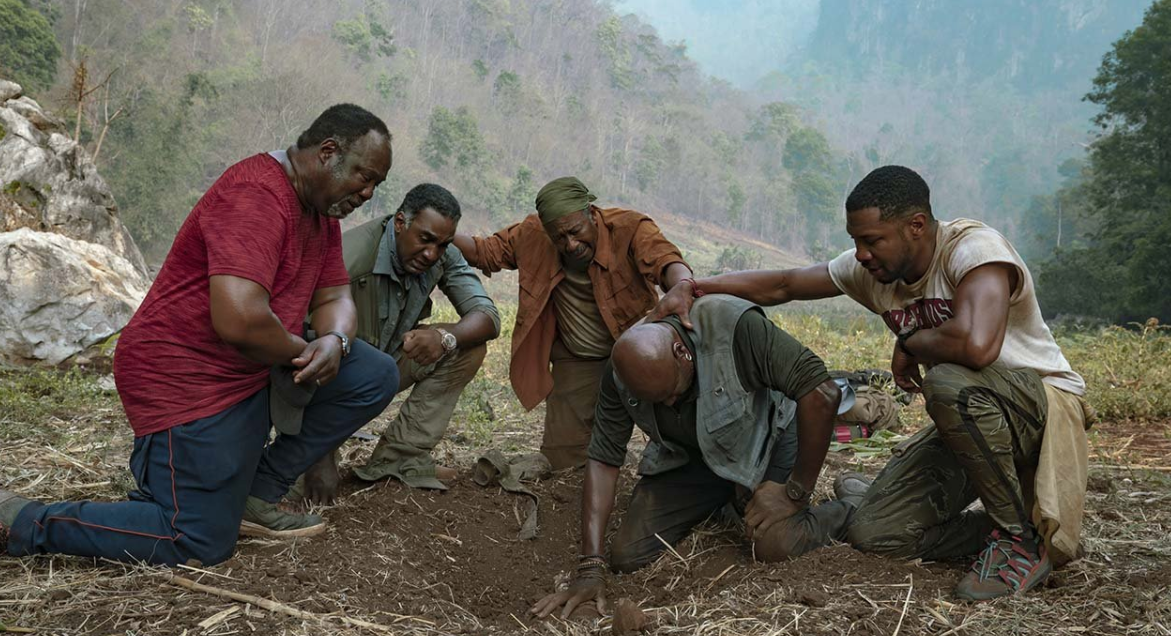
Da 5 Bloods follows four black Vietnam veterans (played by Delroy Lindo, Clarke Peters, Isaiah Whitlock, Jr., and Norm Lewis) who travel to present-day Vietnam to search for the remains of their former squad leader, “Stormin’ Norman” (Chadwick Boseman, not to be confused with Gen. Norman Schwarzkopf) and a cache of gold buried in the same area. Unsurprisingly, things do not go as planned, beginning with the unexpected appearance of the son (Jonathan Majors) of one of the “bloods” and continuing as the group journeys up the Mekong. Unity gives way to dissent and division, exacerbated by misunderstandings and old injuries (both physical and psychological), while outside forces intrude to mostly destructive effect. Overlaying all of these conflicts is the historical legacy of using black Americans to fight morally compromised wars for a country that treated them as lesser beings—an irony hammered home at the outset with a montage of archival footage of black GIs and famous figures (including Muhammad Ali, Angela Davis, and Kwame Ture) commenting on the hypocrisy of their conscription. The point is further underscored by historical factoids embedded in flashbacks of Stormin’ Norman’s expostulations and radio broadcasts by “Hanoi Hannah” (Veronica Ngo) interpolated throughout the film, along with a smartly curated selection of songs by Marvin Gaye.
Lee’s plainly got a lot on his mind – maybe too much. Da Bloods is handsomely filmed, well acted, and intermittently compelling, but it's also a sprawling, scattershot mashup of multiple genres and themes, its 2 hr 35 min run time at once too long and too short for the amount of ground it’s trying to cover. Its heaviest cinematic debts, as Lee has acknowledged, are to Apocalypse Now (1979) and The Treasure of the Sierra Madre (1948), both of which it openly, almost cheekily, quotes; there are elements, as well, of Rambo and Platoon, and a few echoes of Three Kings and Richard Linklater’s Last Flag Flying. The film takes on, for good measure, interracial romance, family secrets, strained father-son relationships, white postcolonial guilt, and Vietnam’s revival and reckoning with its own wartime scars.
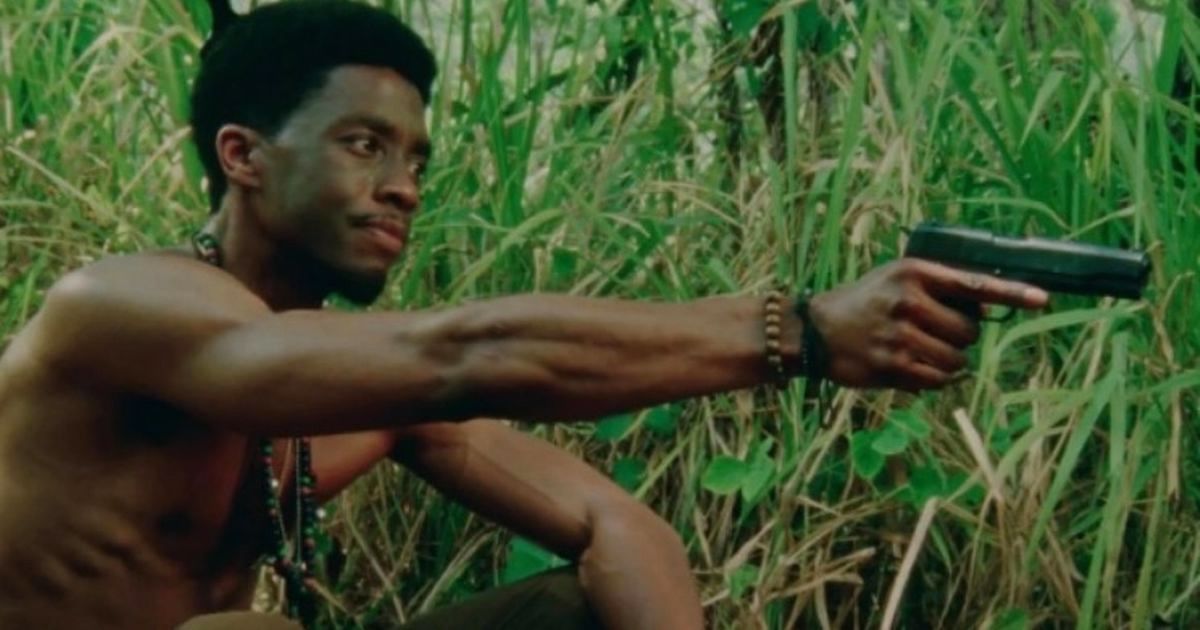
It all hangs together tenuously at best, and Bloods practically screams for the hard edit Netflix clearly never demanded. Major plot turns come out of nowhere and lack the intended impact because the underlying characters or dynamics haven’t been developed sufficiently. The tonal shifts, too, are head-spinning, as the film moves from the sharp polemic of the opening montage to the warm, delightful chemistry of the four living “bloods”’ reunion in Hanoi (honestly, I could have just watched those guys dancing the funky chicken for the rest of the movie) to the mounting tensions and pops of unexpectedly gruesome violence during the middle stretch of their journey inland, to an improbable shoot-em-up third act that feels like it’s out of a Tarantino movie. The score, by the great Terence Blanchard, also feels off at times, too often inflating moments that should be underplayed.
Despite its messiness, Da 5 Bloods is well worth watching for two primary reasons: Lindo and Peters, whose portrayals of the group’s resident hair trigger and cool head, respectively, provide the heart and soul of the film. Lindo’s the one that’s garnered the most critical recognition, and for good reason: as Paul, the most tormented of the four surviving “bloods,” he projects with great power the festering burden of anger, trauma, and guilt the character’s been carrying for decades, and his increasing paranoia as he journeys closer and closer to the place that fucked him up for life. (As his long-suffering son, Majors plays off this constant tension poignantly.) Yet Paul’s climactic moment isn’t one of explosion but of expiation, as piercing in its tenderness as any of his prior Lear-like rage against the world. It’s been a while since Lindo’s had a big-screen role this meaty, and he makes the most of it.
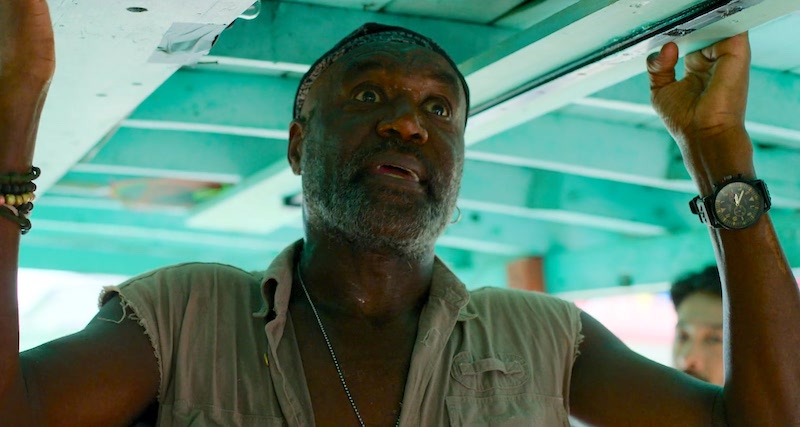 Delroy Lindo already garnering awards buzz for "Da 5 Bloods"
Delroy Lindo already garnering awards buzz for "Da 5 Bloods"
Meanwhile, Peters, better known for his TV work (though he had memorable turns in Three Billboards Outside Ebbing, MO and Harriet), is equally strong in the less showy role of Otis, the de facto leader of the expedition. While his calm self-possession and quiet intelligence seem best equipped to guide the team out of their deepening quagmire, as we watch him struggling to keep pace and bent over under his burdens – both literal and metaphorical – we see from the pain in his eyes that he’s just as haunted by his past as any of the other vets. Although Otis’s Vietnam back story is underwritten (and had me scratching my head over timelines and character ages), Peters easily transcends these limitations.
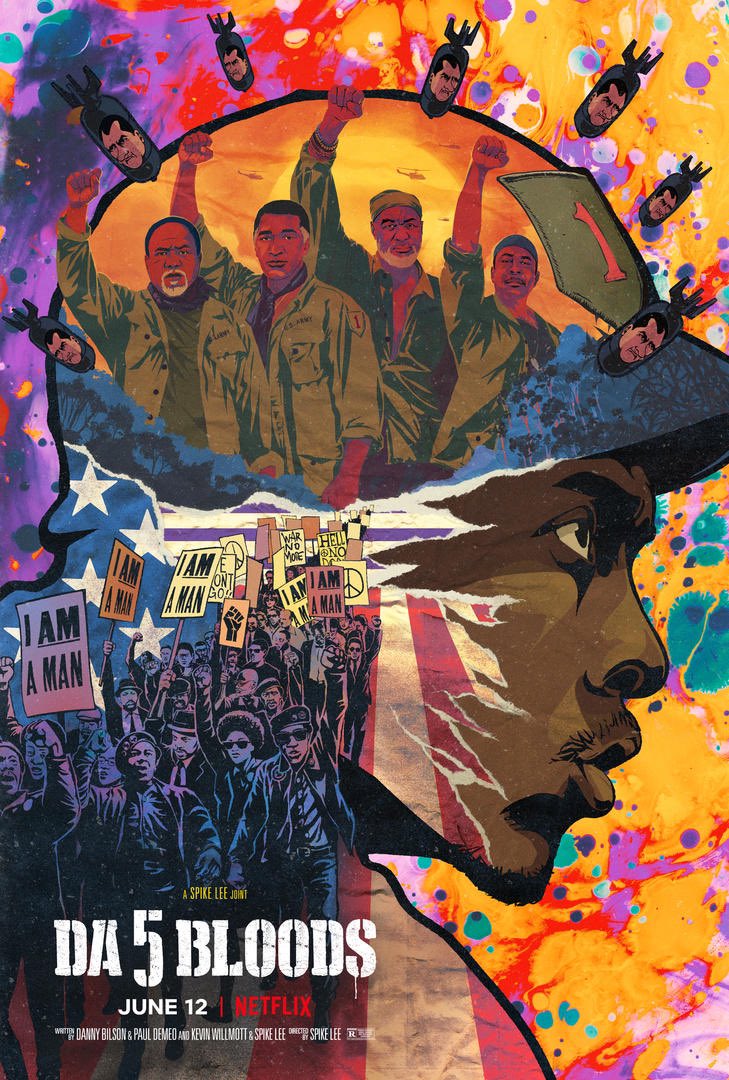 All in all, Da 5 Bloods is far from being Lee’s best or most cohesive work, and suffers especially in comparison with its predecessor, BlacKkKlansman. But as with virtually all his movies, it will make you stop and think about difficult questions even as it entertains you. There aren’t many filmmakers who can do both of those things at once. We’re lucky to have one in Spike Lee.
All in all, Da 5 Bloods is far from being Lee’s best or most cohesive work, and suffers especially in comparison with its predecessor, BlacKkKlansman. But as with virtually all his movies, it will make you stop and think about difficult questions even as it entertains you. There aren’t many filmmakers who can do both of those things at once. We’re lucky to have one in Spike Lee.